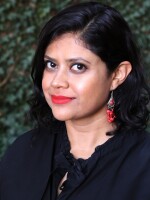Many area Muslims are preparing for their second Ramadan of the pandemic, with hope that the month of dawn-to-dusk fasting will be filled with the communal prayers and family gatherings they went without last year, as COVID-19 began to sweep the state.
“Last year, there was no prayer [in the mosque],” said Ali Suleiman Ali, the imam of the Muslim Community of the Western Suburbs of Detroit in Canton. “Everybody [came to] understand the importance of community, the importance [of] coming together.”

This year, he said, the mosque will allow congregants to partake in the optional nighttime worship that is part of Ramadan tradition, but, instead of standing shoulder-to-shoulder, there will be a divide of six feet between each person. Ali said the mosque will not host the evening meal that marks the end of the fast or offer additional lectures and activities as it did before the pandemic.
“All we are going to do is to pray,” he said. “After the prayer, everybody goes home.”
Even with the limited offerings, Ali said that the community would remain vigilant about the current surge in COVID-19 infections in the region, and cancel in-person gatherings if necessary.
“We never came to a point that will ever turn away people,” said Mirvat Kadouh, the vice chair of the Board of Trustees at the Islamic Center of America, which, at 120,000 square feet, is one of the largest mosques in North America. The Center remained open for prayers last year, but with social distancing measures in place.
Houses of worship were exempt from penalties associated with the state-wide closure of businesses, schools, and other community centers that went into effect in March 2020.
Even so, like the Muslim Community of the Western Suburbs, the Islamic Center of America will not be offering large-scale meals to break the fast as it did before the pandemic.
The Islamic Center of America partnered with the Henry Ford Health System to administer vaccines for more than a month. Kadouh estimates that the Center has administered between 600 and 900 shots during each one of its Monday clinics.

“We've been getting a lot of community members that are interested in wanting to get vaccinated so they can go back to their normal lives and have the family gatherings for Ramadan. [They’re] making sure everybody in the family is vaccinated,” Kadouh said, so that they can return some sense of normalcy to their holy month traditions.
That includes Kadouh, who said she missed getting to spend time with her family and was saddened to see her parents break their fast on their own.
“It was really sad last year that we weren't able to sit with them,” she said.
Now that she and most of her family members have been vaccinated against COVID-19, Kadouh said they will start having family gatherings again, but on a much smaller scale than they did before the pandemic.
“I'm [usually] the person that doesn't cook during Ramadan,” she said with a laugh. “Last year I literally had to cook every single day.”
This year, Kadouh said, “I'm looking forward to being at my parents’ [house].”
Want to support reporting like this? Consider making a gift to Michigan Radio today.







